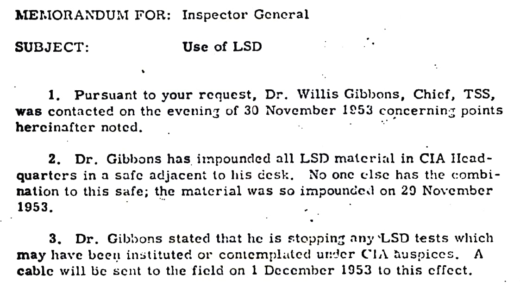This article discusses the signs of alcoholism, differentiating it from heavy drinking, the physical and psychological effects, genetic factors, treatment options, and the impact on relationships. It also highlights the dangers of withdrawal and long-term health consequences, emphasizing the importance of understanding and addressing alcoholism.
Signs of Alcoholism
Signs of alcoholism can often be subtle at first but become increasingly apparent over time. Recognizing these warning signs is crucial for early intervention. Common indicators include:
- Increased tolerance: Needing more alcohol to achieve the same effects.
- Withdrawal symptoms: Experiencing nausea, anxiety, or tremors when not drinking.
- Neglecting responsibilities: Failing to meet work, school, or family obligations due to drinking.
- Continued use despite problems: Drinking even when it causes issues in relationships or health.
- Loss of control: Being unable to limit the amount of alcohol consumed.
Identifying these signs early can lead to timely help and support. If you or someone you know exhibits these behaviors, seeking professional guidance is essential.
Differentiating Heavy Drinking and Alcoholism
Understanding the difference between heavy drinking and alcoholism is vital for appropriate intervention. Heavy drinking refers to consuming large quantities of alcohol in a single occasion or over a period. It does not always indicate a dependency. In contrast, alcoholism is characterized by:
- Physical dependence: Developing a tolerance and experiencing withdrawal symptoms.
- Compulsive behavior: Prioritizing drinking over personal and professional responsibilities.
- Loss of control: Unable to cut back on drinking despite wanting to.
Recognizing these distinctions can help individuals understand their relationship with alcohol and seek help if needed.
Physical Effects of Alcohol on the Body
The physical effects of alcohol on the body can be severe and long-lasting. Alcohol impacts nearly every organ system, leading to various health issues. Some significant effects include:
- Liver damage: Chronic alcohol use can result in fatty liver, hepatitis, or cirrhosis.
- Cardiovascular problems: Increased risk of hypertension, heart disease, and stroke.
- Digestive issues: Alcohol can cause gastritis, ulcers, and pancreatitis.
- Neurological effects: Long-term alcohol use can lead to memory problems and cognitive decline.
Understanding these consequences emphasizes the importance of moderating alcohol consumption to maintain physical health.
Psychological Factors Contributing to Alcoholism
Several psychological factors contributing to alcoholism can complicate the relationship with alcohol. Mental health issues often coexist with alcohol dependence. Key factors include:
- Stress and anxiety: Many turn to alcohol as a coping mechanism for stress or anxiety.
- Depression: Alcohol may temporarily alleviate feelings of sadness but ultimately exacerbates them.
- Trauma: Past traumatic experiences can lead to increased alcohol use as a form of escape.
Addressing these underlying psychological issues through therapy or counseling is crucial for effective treatment and recovery from alcoholism.
Genetic Factors in Alcoholism
Genetic factors increasing risk of alcoholism play a significant role in an individual’s likelihood of developing alcohol dependence. Research shows that genetics can account for approximately 50% of the risk for alcoholism. Key genetic influences include:
- Family history: Individuals with a family history of alcoholism are at a higher risk, indicating a hereditary component.
- Genetic mutations: Certain genetic mutations affect how alcohol is metabolized in the body, leading to increased susceptibility.
- Brain chemistry: Genetic predispositions can alter neurotransmitter levels, influencing pleasure and reward responses related to alcohol consumption.
Understanding these genetic factors can help in developing personalized prevention strategies and treatment approaches for those at risk.
Treatment Approaches for Alcoholism
Treatment options for alcoholism vary widely, focusing on the individual’s needs and severity of the condition. Effective treatment often combines various methods, including:
- Detoxification: A medically supervised process to safely manage withdrawal symptoms.
- Counseling and therapy: Individual or group therapy can help address underlying psychological issues and develop coping strategies.
- Medications: Certain medications can reduce cravings and make drinking less pleasurable, aiding in recovery.
- Support groups: Programs like Alcoholics Anonymous provide community support and shared experiences for recovery.
Choosing the right combination of treatment options is crucial for successful recovery and long-term sobriety.
Impact of Alcoholism on Relationships
Alcoholism effects on relationships can be devastating, impacting both personal and social connections. The reliance on alcohol often leads to:
- Trust issues: Lies and deceit surrounding drinking can erode trust between partners and family members.
- Emotional distance: Alcohol dependence can create a barrier, making emotional intimacy difficult.
- Conflict: Frequent arguments may arise due to drinking behavior, further straining relationships.
Recognizing these effects is essential for individuals struggling with alcoholism and their loved ones to seek appropriate help and support.
Environmental Influences on Alcoholism
Role of environment in alcoholism development cannot be understated. Environmental factors significantly influence drinking behaviors and patterns. Important aspects include:
- Social circles: Friends and family who drink heavily can normalize alcohol use and increase the risk of dependency.
- Cultural norms: Societal attitudes toward drinking can shape individual behaviors, promoting or discouraging excessive consumption.
- Stressful environments: High-stress situations, such as financial difficulties or unstable living conditions, can lead individuals to seek relief through alcohol.
Addressing these environmental factors is crucial for effective intervention and prevention strategies.
Dangers of Quitting Alcohol
When considering the dangers of alcohol withdrawal, it’s essential to recognize that ceasing alcohol intake can lead to serious health complications. Withdrawal symptoms can vary in severity, making it crucial for individuals to understand what they might face. Common symptoms include:
- Anxiety and agitation: Many experience heightened anxiety levels, which can be distressing.
- Tremors: Shaking hands or body parts are common during withdrawal.
- Nausea and vomiting: Physical discomfort can often lead to dehydration.
- Seizures: In severe cases, withdrawal can trigger seizures, which require immediate medical attention.
- Delirium tremens: This potentially life-threatening condition involves confusion, hallucinations, and severe agitation.
Due to these risks, it is highly recommended that individuals seeking to quit alcohol do so under medical supervision to manage withdrawal symptoms safely and effectively.
Long-Term Health Issues from Alcoholism
The long-term health consequences of alcoholism can be grave and far-reaching. Chronic alcohol use affects nearly every organ system, leading to several serious health problems. Key health issues include:
- Heart disease: Prolonged alcohol consumption can increase the risk of cardiomyopathy and arrhythmias.
- Brain damage: Alcohol can cause permanent changes in brain structure and function, impacting memory and cognitive abilities.
- Digestive problems: Conditions such as pancreatitis and liver cirrhosis are common among heavy drinkers.
- Cancer risk: Alcohol consumption is linked to various cancers, including breast, liver, and esophageal cancer.
- Immune system suppression: Chronic drinking can weaken the immune system, making the body more susceptible to infections.
Awareness of these health risks emphasizes the importance of seeking help for alcoholism and taking proactive steps towards recovery.





Comments are closed.